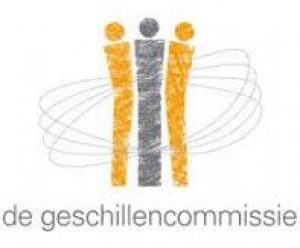 A contract-law dispute arbitration board (http://www NULL.vvl NULL.nu/vvl/site/article/item/747/-Geschillencommissie-Auteurscontractenrecht-van-start-op-1-oktober-2016-/nl) was established in the Netherlands on 1st October 2016. Its role is to arbitrate disputes regarding the interpretation of contract law between authors and the parties exploiting their works. The procedure will be a simple one, based upon the law pertaining to authors’ rights (http://www NULL.hendriks-james NULL.nl/auteurswet/).
A contract-law dispute arbitration board (http://www NULL.vvl NULL.nu/vvl/site/article/item/747/-Geschillencommissie-Auteurscontractenrecht-van-start-op-1-oktober-2016-/nl) was established in the Netherlands on 1st October 2016. Its role is to arbitrate disputes regarding the interpretation of contract law between authors and the parties exploiting their works. The procedure will be a simple one, based upon the law pertaining to authors’ rights (http://www NULL.hendriks-james NULL.nl/auteurswet/).
In July 2015, this law was adapted to reinforce authors’ positions (with regard to contract law) vis-à-vis the parties exploiting their works. It is now compulsory that all licensing and transfer of rights be the subject of a contract or other formal agreement. This law also stipulates that any clause that is clearly and unreasonably unfavourable to the author may be declared void. The right to reasonable remuneration is explicitly cited. At the request of the organisations representing authors and the parties exploiting their works, the Minister of Education, Culture and Sciences can set the amount of reasonable remuneration, based on the advice of these organisations. This right to reasonable remuneration also includes a “bestseller clause”, which grants an author the right to additional and reasonable remuneration if a work meets with unexpected success and the original remuneration was too low in relation to the profits accrued by the work. In addition, the reasonable remuneration for types of exploitation as yet unknown allows authors to request a remuneration if their work is exploited in a way that was not yet known at the time the contract was signed.
The “non-usus” clause gives the author the right to rescind all or part of a granting of licence in the event that the license-holder does not exploit the work within a reasonable period of time after the contract has been signed, or, following an initial exploitation, does not further exploit the work sufficiently within a reasonable period of time.
It is still too early to assess the impact of these changes, since they only apply to contracts signed after 1st July 2015, but they at least have the merit of recognizing the necessity of properly protecting and remunerating authors. And we will need to see what judgements arise from the first test cases so that we can develop robust legal arguments, not only to bring cases before the board, but to win those cases.
